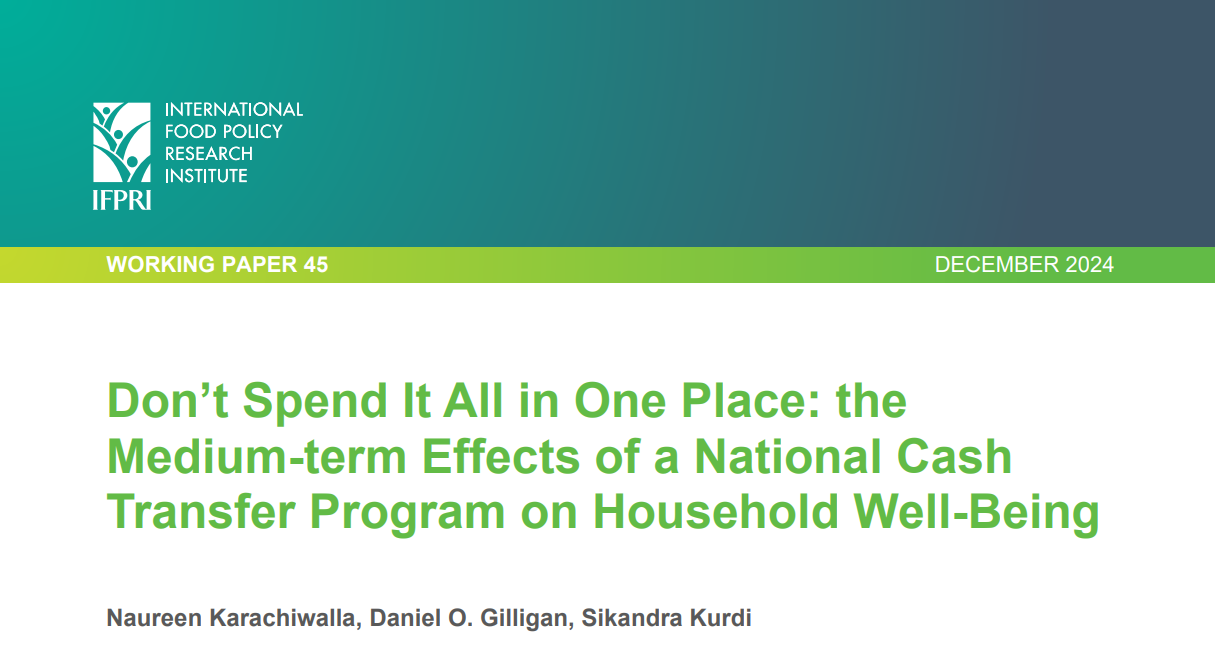Working paper
By Naureen Karachiwalla, Daniel O. Gilligan, Sikandra Kurdi

Cash transfer programs are often effective at increasing household consumption in their early years, but impacts become more nuanced over time as the use of transfers varies. This paper examines the medium-term effects of Egypt’s f lagship cash transfer program, Takaful, on several measures of household wellbeing using a regression discontinuity (RD) design. Findings reveal no significant impacts on household consumption (total, food or non-food), but notable decreases in monthly wage income that are comparable in magnitude to the average monthly transfer. Employment patterns are suggestive of a decrease in hours worked in formal labour among men. There are positive effects on asset ownership, particularly productive assets, indicating a shift toward longer-term investments. Reductions in informal debt suggest improved financial health among beneficiaries and increases in enrollment in primary and preparatory school suggest increased human capital investment as well. These results underscore the potential of cash transfer programs to foster economic stability and investments in the future, even in the absence of significant immediate consumption effects.
Click here to read the paper
Click here to browse publications
